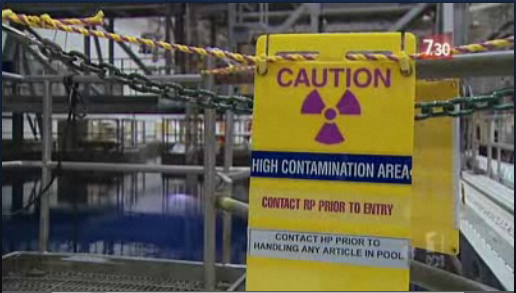
My boss over at APS, Dr. Francis Slakey, continues the battle with the Nuclear Regulatory Commission over efforts to get them to take proliferation risks into account in their licensing decisionmaking. The latest salvo comes in the form of a report by Aussie news channel ABC, which profiled efforts by Silex Systems Inc. to get laser enrichment up and running. Slakey was interviewed, as was Silex Systems CEO Michael Goldsworthy and a slew of Aussia anti-nuke types, on the technology. My favorite quote comes by way of “Anti-Nuclear Activist” Helen Caldicott, who, in referring to the GE-Hitachi consortium in the U.S. working on getting Silex licensed in the U.S., says that:
“General Electric makes good things for life, Greg: it makes stoves, washing machines, irons, nuclear weapons, nuclear reactors and missiles.” How would you make a corporate logo for that one?
What I find most interesting about the report, however, is the seeming paradox between Australia’s very strong nonproliferation credentials and the push by this Australian company to press ahead with a technology that has questionable proliferation risks. Presenter Greg Hoy notes in his report that:
“In another strange twist to this tale, the Lucas Heights nuclear facility used to be known as the Atomic Energy Commission, and it was here – way back in the 1970s – that the Silex scientist Dr Horst Struve was central to government-funded research on laser-enrichment of uranium. The government shut that program down. It was then that the company called Silex moved into the same building that the government research had been conducted in. Today, Dr Horst Struve – and his colleague and company – stand to make a great deal of money from laser-enrichment research.”
Strange indeed, Greg. Strange indeed.